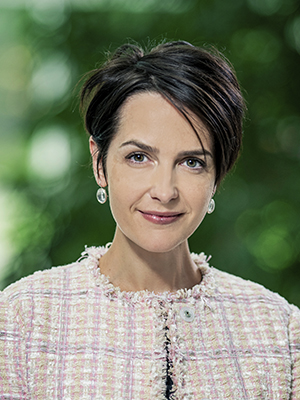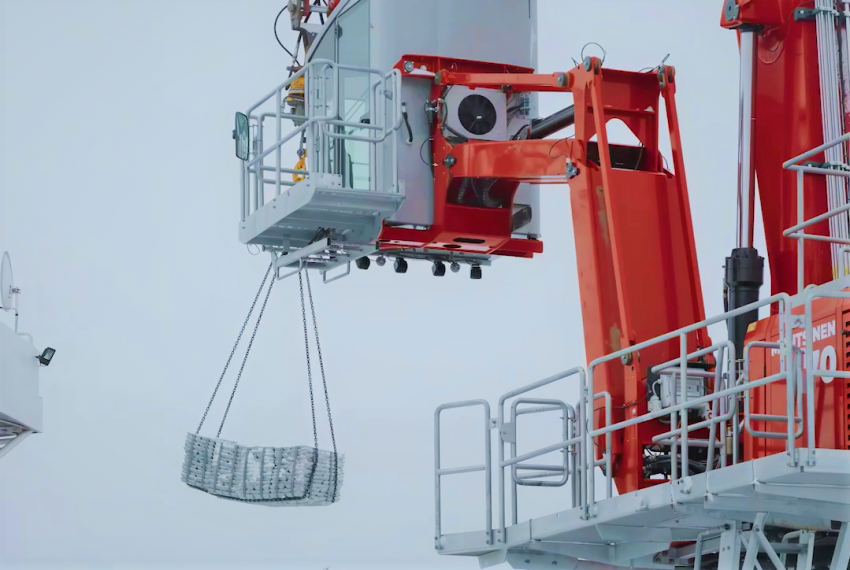The decline of the global economy, geopolitical challenges and the collapse of the conventional logistics chains have a significant impact on the cargo flow in the port of Riga. However, the port terminals in cooperation with Latvian logistics companies have been able to attract new groups of commodities and create new cargo delivery routes to offset the decrease in the expected cargo volumes.
“The new cargo transportation through the port of Riga and the new logistics routes are unequivocally related to the war in Ukraine started by Russia and the resulting disruption of the conventional logistics chains,” explained Māris Luns, Partner at the logistics company SIA Nurminen Maritime Latvia. “Since the beginning of the war, ships of international container lines do not call Russian ports, causing great problems not only for Russian, but also for Kazakh exporters. This situation has affected one of Kazakhstan's most important export industries - non-ferrous metallurgy, the production of which until the beginning of the war was dispatched to clients around the world via Russian ports. That is why in March last year Kazakh clients started to clarify if they could accept and send cargo via the port of Riga,” continued M. Luns.
Kazakhstan's metal cargo transportation through the port of Riga fostered creation of three new delivery routes. First of all, non-ferrous metal castings produced by Kazakh metallurgical enterprises - ingots of zinc, lead, cadmium and aluminum, as well as copper sheets enter the port by rail, and then are further delivered by ships to manufacturers all over the world, mainly in Europe - Germany, Italy, the Netherlands, as well as the USA and India. Metal is also transported by road to the neighboring European countries - Lithuania, Poland, Ukraine.
The second new cargo route is related to the export of Kazakh ferroalloys. Kazakh ferroalloy plants are important suppliers of this raw material to world steel producers. Ferroalloys are received at the port of Riga in containers by rail and further sent by ships to steel producers mainly in European countries - Germany and Italy, as well as in South America - Chile and Peru. Kazakh ferroalloys are not a completely new cargo in the port of Riga - it returned to the port after a long break.
The third route of cargo delivery is developed to provide the non-ferrous metal industry of Kazakhstan with the necessary raw materials. The main cargo on this supply route is lead ore concentrate, which Kazakh manufacturers receive from the countries of South America - Mexico and Peru. The said cargo is delivered to the port of Riga by sea in containers, and then it is sent to Kazakhstan by rail.
The processing of new metal cargo flows - unloading, storage, preparation and loading for further shipment is carried out by the port stevedoring company SIA Jaunzeltiņi. “Today, the port companies have to face continuous and rapid change. New cargo, new modes of transportation and new packaging require effective handling solutions and technologies to satisfy clients’ demands quickly and qualitatively,” said Artūrs Veispals, Board Chairman of SIA Jaunzeltiņi.
“We are relentlessly thinking about investments in the company's infrastructure, technological solutions and improved work efficiency. At the moment, we are focusing on new types of cargo and new client requirements. Currently, we improve our warehouses and the existing cargo handling facilities by introducing technical improvements and adapting the equipment to the new types of cargo and relevant operations. Since this is an expensive cargo with great value, we pay special attention to safety, cargo tracking and inventory solutions,” said A. Veispals, referring to the company's ability to adapt to new challenges.
Information for media

- [email protected], +371 670 308 53
- Freeport of Riga Authority
- 12 Kalpaka blvd, Riga, Latvia, LV-1010
 English
English























